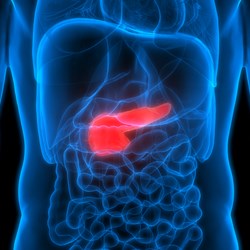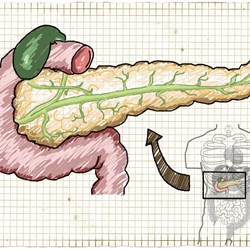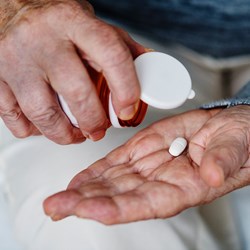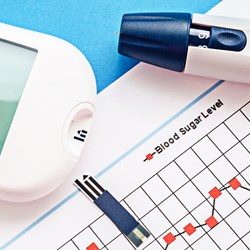Other Diabetes
Type 1 and Type 2 diabetes are the most common but there are some other rarer types of diabetes, these include Latent Autoimmune Diabetes in Adults (LADA); Maturity Onset Diabetes of the Young (MODY); Neonatal Diabetes and Steroid Induced Diabetes. There is lots of information on the genetic causes of diabetes at this link: www.diabetesgenes.org
LADA has similarities to both type 1 and type 2 diabetes, so it’s sometimes referred to as type 1 ½ diabetes. It’s similar to type 1 diabetes in that your body’s immune system attacks the cells that produce insulin, but it develops more gradually, which is similar to type 2.
MODY is a rare form of diabetes and caused by a mutation, or change, in a single gene which means it runs strongly in families usually affecting someone in each generation with a 1 in 2 chance of an affected person passing the condition to an offspring. There are several different types of MODY so a genetic test will need to be carried out to determine what type it is.
Neonatal diabetes usually occurs in the first 6 months of life and is different from type 1 as it’s not caused by the body attacking its own insulin-producing cells. It’s usually caused by a change in a gene which affects the production of insulin.
Patients with genetic causes of their diabetes may be referred to a specialist clinic for further testing for themselves and their families so that they can have the most appropriate treatment.
Steroid-induced diabetes is caused by taking steroids, which may be prescribed to reduce inflammation in the body or to treat conditions like arthritis, COPD (lung disease), or polymyalgia rheumatica (PMR)). They can often be prescribed if you are undergoing chemotherapy treatment. Steroids increase insulin resistance which raises blood glucose levels. Patients on steroids should be monitoring blood sugar regularly as diabetes treatment may need to be increased whilst on steroids but then may need to be decreased as the steroid dose is reduced and then stopped. Blood sugar levels can fall rapidly if steroids are stopped so steps may require to be taken to avoid a hypoglycaemic event.
If you have any of these types of diabetes, you will still be under the care of your local diabetes team so will receive the same check-up appointments to monitor your blood glucose levels, eyes, kidneys, heart, legs and feet. Diabetes UK has compiled a list of healthcare checks that should be carried out every year which you can find in the resources below.





